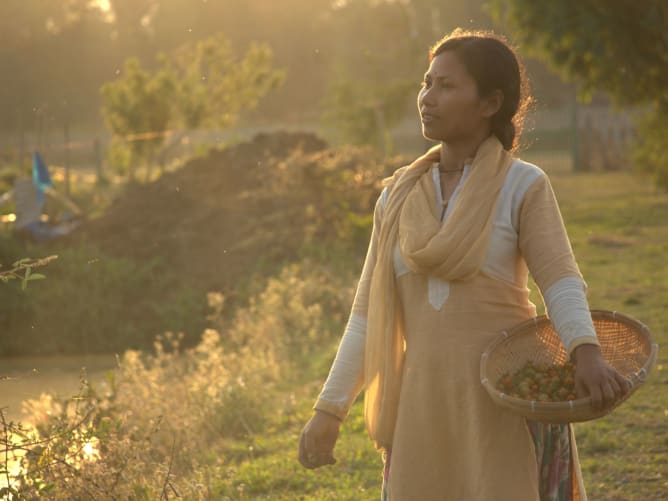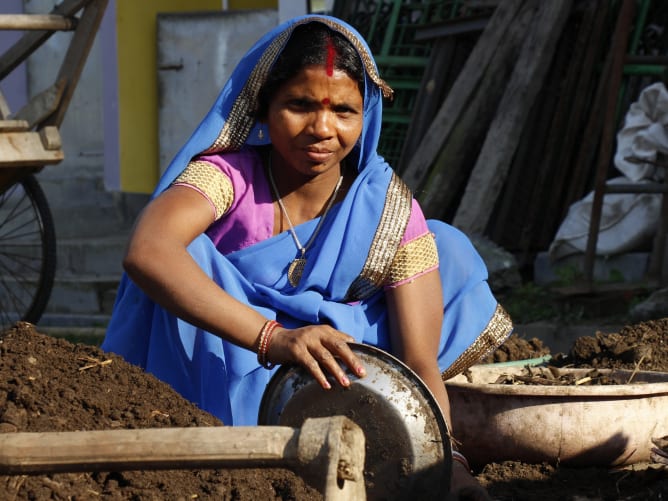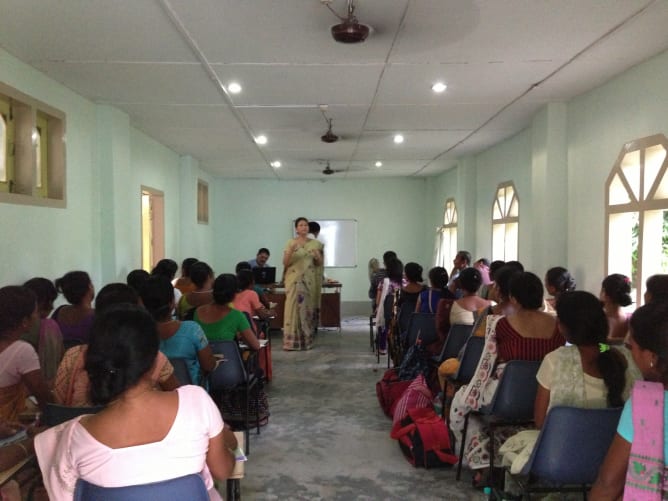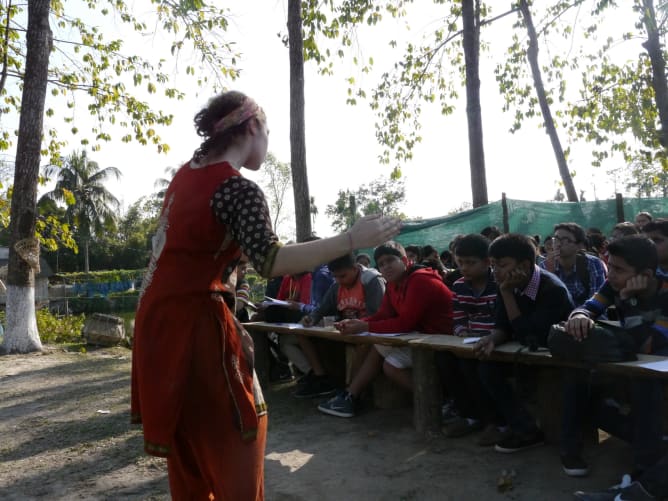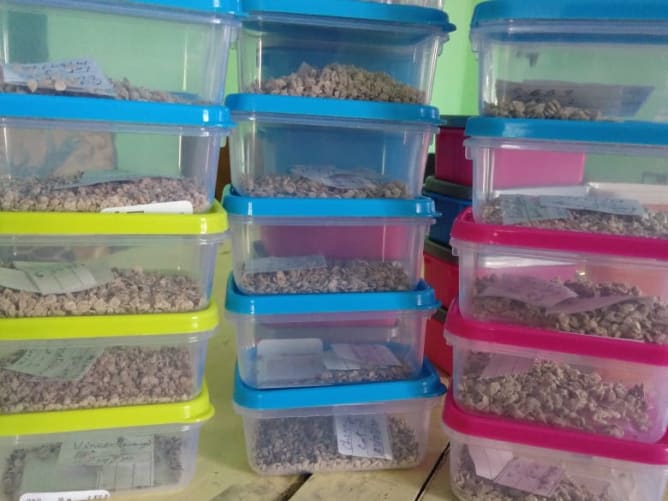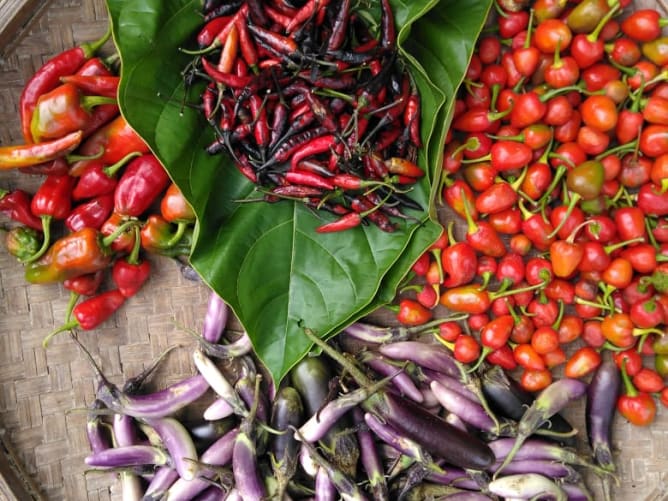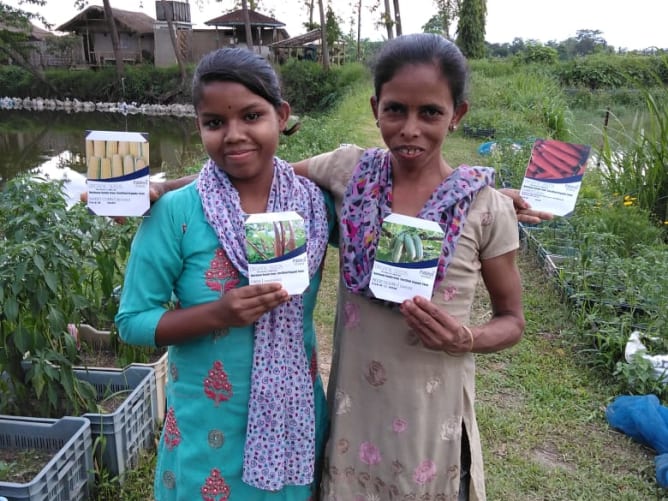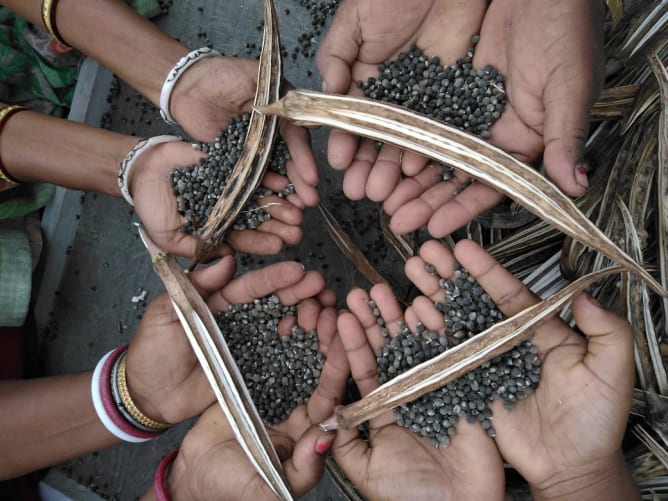Organic seeds from Pabhoi
de Neelam Dutta, WFSCAN et Sativa Rheinau AG
Seed sovereignty, climate change and organic farming
(click «CC» for video subtitles)
In the last decades, India’s farmers have gotten into a bad situation. By tradition, families had their own seed storages and did their own seed propagation. But a combination of unfulfilled promises from the green revolution and initially subsidised seeds from chemical companies have changed everything.
Now there is a commercial seed market, dominated by foreign multinational corporations, which created an ecology of dependencies of farmers going into debt annually by buying non-reproducible hybrid seeds, chemical fertilizers and pesticides - often not knowing how to use them properly or safely.
This is a severe problem, since 60% of the people here are linked to agriculture, many of them living in subsistence. At the market, the result is clearly visible: You find little crop diversity and no adapted varieties.
We want to change that and offer farmers a real choice. Our goal is to create a seed initiative for northeast India, which is able to supply farmers with locally adapted seed, taking the traditional knowledge, using modern best practices of organic farming and combining them with training on seed production.
Pabhoi Greens today is an organic certified and diverse farm, which works with intercropping, fish, vermicompost, beekeeping and vegetables. With 35 workers from 9 different ethnic groups at the farm, we try to live a holistic approach, equality based and cast free. Because we want women and farmers to be strong and self dependent, we offer trainings on organic farming. More than 4’000 farmers, students and women groups come to our farm every year for training.
Our initiative is embedded in an agro-ecological movement that meets climate change with resilience through sovereignty, diversity and locality. With a climate that puts farmers to the test every year, measures such as own seeds, locally adapted varieties, but also compost management, mixed cultivation, ecological farming and high biodiversity are of utmost importance.
Seed project at Pabhoi Greens
Being an organic farmer, I always felt the urge of having our own seeds. Because we are losing our sovereignty on seeds and many other aspects, I decided to focus on organic seed development in our state with aims of one day reaching the entire nation. We started in 2015 with a small production of heirloom indigenous seeds. This is a process, we started investing our time and energy to learn how to best do the different steps: collect seeds, grow them, see through the selection process. Our goal is to preserve the seeds and also to grow certain seeds, which every farmer can keep on their own. Apart from this, we have set up a company where we not only do our breeding process but also try to make our initiative financially self-sustaining in the long term.
We have made big steps but still have things to learn, since growing vegetables is one thing, but propagating seeds is another. We were able to travel to Europe and learn about organic seed production and built up partnerships. We now have had trials of over 250 different heirloom and reproducible varieties and had four seasons of small-scale seed production and experimental marketing. The results are promising. The farmers are satisfied and our initiative has sold a motivating number of seed bags.
One thing we learned is that we can also get support from the customers, since taste is important in India. Locally adapted and often non-hybrid varieties have a better chance of maturing under our climate conditions, which benefits the taste a lot.
Next steps in the seed project
To continue our quest and bring the seeds to the people, we need your help. The project is growing, but the farm cannot completely finance the development needed. We do not receive any state subsidies or external funding.
We have 10 people working in the seed project, doing planning, production, selection, drying, sorting, germination testing and packing in seed bags. We need to build greenhouses to protect the seed crops from the tropical monsoon rain. Some plant species need specific cold weather conditions in order to bloom and produce seeds. For these plants, we are collaborating with farmers in the highlands Arunachal Pradesh and Nagaland and successfully started producing brassica seeds (broccoli, cauliflower, kohlrabi). Together with the farmers in the villages we need to work-out efficient and high quality production. We have the chance to do trainings in 5 nearby villages, where farmers are interested to learn about seed production and help to build up a multiplication network.
In this crowdfunding campaign we work with two levels of financing. The first one is 33’000 CHF, but we hope to raise a total of 50’000 CHF. The aim is to acquire important infrastructure, finance part of our project salaries for the next two years and to help us to make the planned training courses possible.
See some of our current costs and planned improvements:
Current
- Seed project wages (10 semi-skilled workers per year): 780’000 Rupees > 9’700 CHF
- Traveling to testing sites in Arunachal and Nagaland: 118’000 Rupees > 1’400 CHF
Planned
- Project assistant (per year): 288’000 Rupees > 2’800 CHF
- Greenhouse: 1’160’000 Rupees > 14’400 CHF
- Power backup: 340’000 Rupees > 4’200 CHF
- Dehumidifier: 140’000 Rupees > 1’700 CHF
- Wind sifter: 180’000 Rupees > 2’200 CHF
- Cold storage: 190’000 Rupees > 2’600 CHF
- Training project in villages: 120’000 Rupees > 1’500 CHF
Please support our campaign and help rural farmers in India to have access to organic seeds for small-scale, diversified cropping.
Special thanks to:
- World Food System Center Alumni Network (communication)
- Sativa Rheinau AG (seed donations and rewards shipping support)
- Pabhoi Greens team (for everyday commitment)
